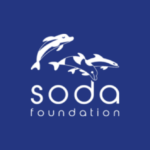
Welcomes SoftBank Group to its member ranks
TOKYO, May 25, 2022 – The SODA Foundation, which hosts the SODA Open Data Framework (ODF) for data mobility from edge to core to cloud, today announced two new open source projects: Kahu and Como. Kahu streamlines data protection for Kubernetes and its application data, and Como is a virtual data lake project to enable seamless access to data stored in different clouds. The SODA Foundation also welcomes SoftBank Group as an end-user supporter and key collaboration partner on the Como project.
According to the 2021 SODA Data and Storage Trends Report, two of the top challenges in managing data in containers and cloud-native environments are availability (46%) and management tools (38%). In direct response to the report findings, the SODA Foundation community collaborated to introduce new tooling options through the Kahu project to improve backup and restore practices critical to data availability. Furthermore, as enterprises become more data-driven and data growth for some enterprises can exceed 10PB per year, object data management offered by the Como Project will play an important role in performance and scalability requirements for cloud-native environments.
“Data collection, management, and consumption is becoming the new competitive battlefield in IT”, said Steven Tan, chairman, SODA Foundation. “We’re excited to announce Kahu and Como as the latest advances in open source data management and storage. Our 28 members are also excited to welcome the engineers and open source community within SoftBank Group to the Foundation.”
“Data is the fuel of our global digital economy and harnessing its power requires collaboration on a massive scale”, said Kuniyoshi Suzuki, Senior Director, Cloud Engineering , SoftBank Group. “Softbank is excited to be joining a community of open source software developers focused on enabling improvements toward data storage, recovery, and retention in cloud environments. We look forward to collaborating with the SODA Foundation and its members, while contributing to the future of this important community.”
New Open Source Releases
In addition to the announcement of Kahu and Como projects, the SODA Foundation also announced the:
Release of SODA Framework Madagascar v1.7.0: Formerly Open Data Framework (ODF), SODA Framework comprises independent projects initiated by the community to solve common data and storage problems faced by end users. It includes:
Terra: a universal SDS controller for connecting storage to Kubernetes, OpenStack, and VMware environments.
Delfin: a performance monitor for heterogeneous storage infrastructure in a single pane of glass.
Strato: a multi-cloud data controller using a common S3-compatible interface to connect to cloud storage.
Kahu : new project to streamline data protection for Kubernetes and application data.
Expansion of its Eco Project Initiative with the introduction of more open source projects:
DAOS: a software-defined object store designed from the ground up for massively distributed Non Volatile Memory (NVM), providing features such as transactional non-blocking I/O, advanced data protection with self-healing on top of commodity hardware, end-to-end data integrity, fine-grained data control and elastic storage.
YIG: extends Minio backend storage aggregating multiple Ceph clusters to form a massive storage resource pool that can easily scale up to exabyte (EB) levels with minimal performance disruption.
CubeFS: a cloud-native storage platform used as the underlying storage infrastructure for online applications, database or data processing services and machine learning jobs orchestrated by Kubernetes.
Karmada: a Kubernetes management system that enables organizations to run cloud-native applications across multiple Kubernetes clusters and clouds, with no changes to your applications.
SBK: an open source software framework for the performance benchmarking of any storage system.
Conferences and Survey
SODACODE: this week, developers from around the world will participate in SODACODE 2022 – the Data & Storage Hackathon on May 25 – 26. The first-of-its-kind coding event organized by SODA Foundation is open to developers from all levels ranging from beginner to advanced. The hackathon will conclude with project demonstrations, presentation sessions, panel discussions and an award ceremony for the hackathon winners.
Trend Survey: The SODA Foundation will release its second-annual Data and Storage Trends Survey on June 30, 2022.
SODACON: a technical conference held by SODA Foundation, will be held this year in Yokohama, Japan on December 7, 2022. The conference will bring together industry leaders, developers and end users to present and discuss the most recent innovations, trends, and concerns as well as practical challenges and solutions in the field of Data and Storage Management in the era of cloud-native, IoT, big data, machine learning, and more.
Additional Resources
Join the SODA Foundation
Attend SODACODE 2022 – The Data & Storage Hackathon
Read the 2021 Data and Storage Trends Report
About the SODA Foundation
Previously OpenSDS, the SODA Foundation is part of the Linux Foundation and includes both open source software and standards to support the increasing need for data autonomy. SODA Foundation Premiere members include China Unicom, Fujitsu, Huawei, NTT Communications and Toyota Motor Corporation. Other members include China Construction Bank Fintech, Click2Cloud, GMO Pepabo, IIJ, MayaData, LinBit, Scality, Sony, Wipro and Yahoo Japan.
Media Contact
info@sodafoundation.io
###
The Linux Foundation has registered trademarks and uses trademarks. For a list of trademarks of The Linux Foundation, please see its trademark usage page: www.linuxfoundation.org/trademark-usage. Linux is a registered trademark of Linus Torvalds.
The post SODA Foundation Prioritizes Backup and Restore for Containers, Introduces Object Data Management Across Cloud Providers appeared first on Linux Foundation.
The post SODA Foundation Prioritizes Backup and Restore for Containers, Introduces Object Data Management Across Cloud Providers appeared first on Linux.com.


0 Commentaires